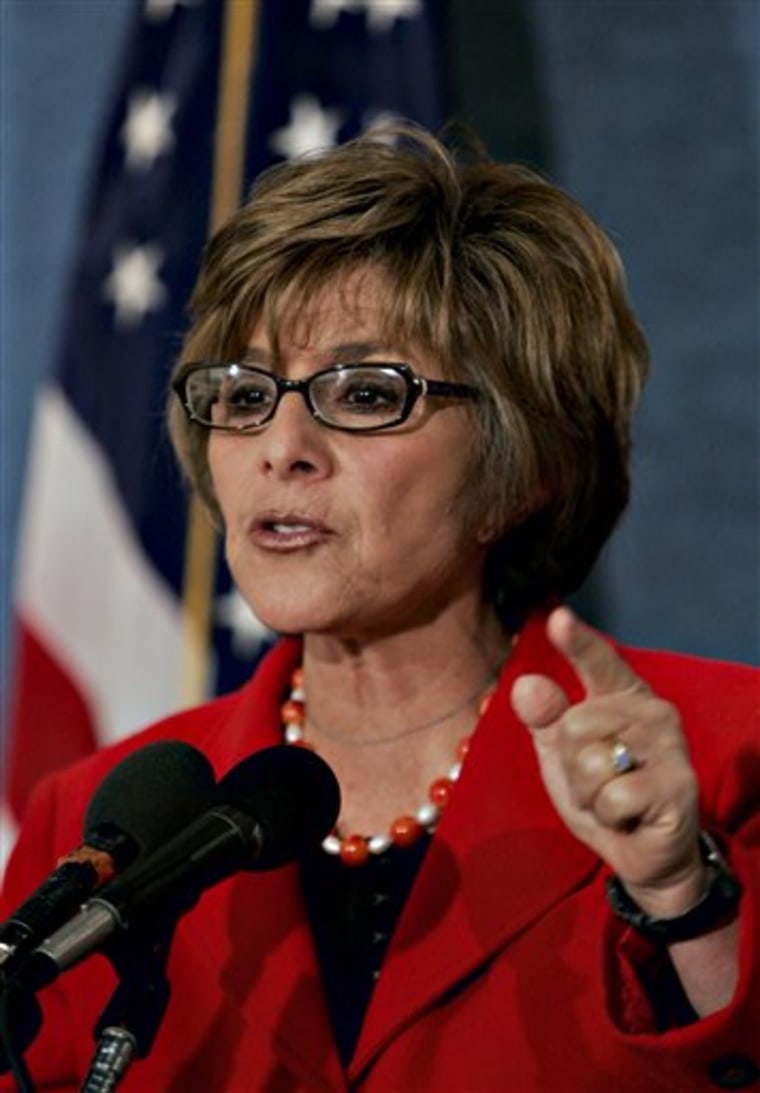The head of the Senate Environment Committee on Wednesday said the Bush administration should immediately act to reduce heat-trapping greenhouse gases from automobiles, after the Supreme Court affirmed its authority earlier this month.
Sen. Barbara Boxer, California Democrat, said the Environmental Protection Agency should also write new regulations to curb carbon dioxide emissions from coal-burning power plants — which emit the lion’s share, or 40 percent, of U.S. carbon dioxide. Cars emit about a third of the U.S. total.
In a landmark decision, the top U.S. court ruled this month that the EPA has the authority under the federal Clean Air Act to regulate greenhouse gases from vehicles.
“The EPA has no excuse anymore,” Boxer told reporters at the National Press Club. EPA Administrator Stephen Johnson “can do this yesterday,” she added.
“Administrator Johnson and the Bush administration take seriously the challenge of global climate change and are discussing actions to address the Supreme Court’s decision,” agency spokeswoman Jennifer Wood said.
The United States, the world’s top emitter of heat-trapping gases, has spent $35 billion on climate change measures since 2001, more than any other nation.
President Bush opposes mandatory limits on emissions, saying they would harm the economy. Instead, Bush has set a goal of reducing the intensity of emissions — as measured versus economic growth — by 18 percent by 2012.
According to EPA data released this week, carbon dioxide emissions rose by 16 percent between 1990 and 2005 to 7.26 billion metric tons. The U.S. economy grew by 55 percent over the same period.
EPA chief to testify
Johnson will be in the hot seat on April 24, when he will testify before Boxer’s committee.
“I will challenge him to use the power EPA has had all along to address global warming, and has refused to use,” Boxer said. “The Supreme Court has left this administration with no excuses for further delay.”
Boxer wants to cap and eventually reduce carbon dioxide emissions by at least 80 percent below 1990 levels by 2050, with the aim of keeping the Earth’s temperature from rising less than 2 degrees Fahrenheit.
But Boxer was mum on when she might call for a full Senate vote on legislation. “Whenever I have the votes for strong global warming bills, I will get them to the Senate floor,” she said.
On Thursday, Boxer said she will meet with Senate Democrats including Majority Leader Harry Reid to chart a course on climate change.
Also that day, Sen. Tom Carper, Delaware Democrat, and Lamar Alexander, Tennessee Republican, will introduce the Clean Air Planning Act of 2007, which would put first-ever caps on greenhouse gas emissions from power plants.
Action in the House
In the House Wednesday, Republicans made it clear they won't make things easy for Democrats trying to lay the groundwork for legislation on greenhouse gases and climate change.
At the first hearing of a special committee established by Speaker Nancy Pelosi to make the case for a bill, Republicans questioned efforts to paint global warming as a national security threat.
"Unfortunately, this debate hasn't been characterized by common sense. It's been characterized by extremism," said Wisconsin Rep. James Sensenbrenner, the senior Republican on the panel. "While this extremism hasn't done anything to produce effective solutions, it has created a lot of hot air, which hasn't been good for Congress' carbon footprint."
Sensenbrenner questioned "why global warming has suddenly become an issue of national defense" and afterward accused politicians and pundits of stoking children's fears.
Rep. Jay Inslee, D-Wash., said Sensenbrenner's remarks reveal also that "there's a lot of fear in Congress."
Democrats who favor mandatory limits on "greenhouse" gases hope to send a bill to President Bush before the 2008 election. Bush favors more research and voluntary measures to slow the gases' growth.
Longer list of concerns
The hearing was dominated by worries about global security and U.S. dependence on other countries for oil, rather than the usually cited climate change concerns: melting glaciers, rising sea levels and other threats from carbon dioxide and other warming gases that trap heat in the atmosphere like a greenhouse.
"It is a double threat, like Orthus, the monstrous two-headed hound of Greek mythology, with one head facing backwards and the other forwards," said Rep. Edward Markey, D-Mass., who chairs the new House Select Committee on Energy Independence and Global Warming.
"Our ever-rising oil dependence is directly attributable to a backwards-facing energy policy, while looking forward we can see the threat of rising temperatures and the subsequent increasing risk of natural and humanitarian disasters," he said.
The hearing coincided this week with first United Nations Security Council debate on climate change, where Britain argued that rising temperatures will spark global conflicts and developing nations countered that the issue wasn't worth the council's time debating.
A Virginia-based national security think tank warned this week that global warning gases pose a "serious threat" to U.S. national security. The report by The CNA Corporation was written by six retired admirals and five retired generals. It predicted worsening terrorism and fights involving the United States over dwindling natural resources that will result from a warming of the earth.
At the hearing Wednesday, Gordon Sullivan, a retired general who was the Army's chief of staff from 1991 to 1995, said global climate change "will be a significant threat to our national security and in a larger sense to life on earth as we know it to be."
